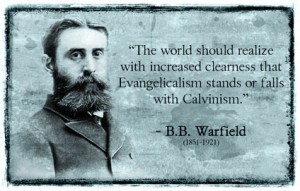 (1) Ever wondered where the doctrines of grace English acrostic T.U.L.I.P. originated?
(1) Ever wondered where the doctrines of grace English acrostic T.U.L.I.P. originated?
Would it surprise you to find out that it is only just over 100 years old? There’s a very interesting discussion and insightful comments found at Justin Taylor’s blog from a couple of years ago, Ligonier has some SUPER deals today on some excellent material in this week’s $5 Friday sale including two GREAT BOOKS. The online sale starts at 8 a.m. eastern time and goes on for 24 hours or until items are sold out. Check it out here.
 (3) Wish List: Regular readers of this blog will no doubt confirm that I have talked very little about King’s Church in Phoenix, where I serve as pastor. Its currently a very small start up/pioneer Church where we are looking to the Lord to expand as we reach out around us with the gospel of God’s grace.
(3) Wish List: Regular readers of this blog will no doubt confirm that I have talked very little about King’s Church in Phoenix, where I serve as pastor. Its currently a very small start up/pioneer Church where we are looking to the Lord to expand as we reach out around us with the gospel of God’s grace.
A couple of folk suggested I write out a wish list of items we are needing/praying for. I responded that on a blog, people do not wish to be told about needs. By its very nature, the blog is a ministry that is always to be given free of charge.
They said, “That’s very true, but there are some people who have been very blessed by your blog and would wish to know about current needs to see if they can help in any way. You might be pleasantly surprised.”
Perhaps they have a point. I am not going to make a habit of mentioning this, but for those interested, here’s a short list of ministry items we are hoping to acquire:
Full Sound System (speakers, microphones, mic stands, cables, etc.)
Church Chairs
Pulpit
Video Camera upgrade for making youtube videos
Outreach Tracts
Because the folks here have their own ideas and preferences as to what exactly to purchase, please contact us first before buying anything. However, IF you are interested in helping in any way, please know that even small financial gifts towards some of these expensive purchases would be of enormous help.
(4) Most Americans believe that their major problem is something that has happened to them, and that their solution is to be found within. In other words, they believe that they have an alien problem that is to be resolved with an inner solution. What they gospel says, however, is that we have an inner problem that demands an alien solution—a righteousness that is not our own. – Al Mohler, ‘Preaching with the Culture in View,’ in Preaching the Cross (Crossway 2007), p. 81
That’s very clarifying.
The world says: the problem is outside you, the solution inside you.
The gospel says: the problem is inside you, the solution outside you.
(5) The last page of The Last Battle by C. S. Lewis–
‘You do not yet look so happy as I mean you to be,’ said Aslan.
Lucy said, ‘We’re so afraid of being sent away, Aslan. And you have sent us back into our own world so often.’
‘No fear of that,’ said Aslan. ‘Have you not guessed?’
Their hearts leaped and a wild hope rose within them.
‘There was a real railway accident,’ said Aslan softly. ‘Your father and mother and all of you are—as you used to call it in the Shadowlands—dead. The term is over: the holidays have begun. The dream is ended: this is the morning.’
And as He spoke He no longer looked to them like a lion; but the things that began to happen after that were so great and beautiful that I cannot write them. And for us this is the end of all the stories, and we can most truly say that they all lived happily ever after. But for them it was only the beginning of the real story. All their life in this world and all their adventures in Narnia had only been the cover and the title page: now at least they were beginning Chapter One of the Great Story which no one on earth has read: which goes on for ever: in which every chapter is better than the one before.
God bless – John.


 Spurgeon’s pastoral wisdom in dealing with a woman lacking assurance. Concerning this Eddie Harper writes, but she was always fearing that she should never enter the gates of glory. She was very regular in her attendance at the house of God, and was a wonderfully good listener. She used to drink in the gospel; but, nevertheless, she was always doubting, and fearing, and trembling about her own spiritual condition.
Spurgeon’s pastoral wisdom in dealing with a woman lacking assurance. Concerning this Eddie Harper writes, but she was always fearing that she should never enter the gates of glory. She was very regular in her attendance at the house of God, and was a wonderfully good listener. She used to drink in the gospel; but, nevertheless, she was always doubting, and fearing, and trembling about her own spiritual condition. A Brief and Untechnical Statement of the Reformed Faith by Benjamin Breckinridge Warfield
A Brief and Untechnical Statement of the Reformed Faith by Benjamin Breckinridge Warfield